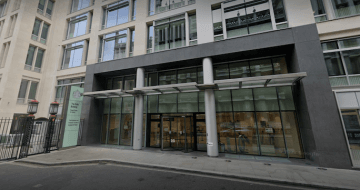Hannah Sinclair, Bristol Uni law grad and aspiring barrister, charts the developments following Philipp v Barclays Bank

In the early 1990s, statutes failed to keep pace with “radical and multifarious advances in the use of modern technology” to commit fraud offences. Within this landscape of heightened economic crime and few statutory protections, the judiciary held that banks owe a duty to their customers not to action the customer’s instructions if the bank has reason to suspect the instruction is a result of Authorised Push Payment (APP) fraud. This offence occurs when a fraudster persuades the victim to instruct their bank to transfer funds into an account controlled by the fraudster. This article examines the creation and evolution of this duty, dissects the Supreme Court’s recent decision in Philipp v Barclays Bank UK PLC [2023] UKSC 25, and reviews regulations expected in 2024.
Creation of the Quincecare duty of care
The duty was created by the Court in Barclays Bank Plc v Quincecare Ltd [1992] 4 All E.R. 363. In this case, Barclays loaned Quincecare £400,000 to purchase chemists’ shops, making Quincecare Barclays’ customer. Quincecare’s chairman instructed Barclays to transfer nearly the entirety of the loan into accounts which were then misapplied for dishonest purposes.
The Court held that Quincecare could recover their losses from Barclays because an ordinary and prudent banker in Barclays’ circumstances would suspect the chairman’s instructions were an attempt to misappropriate the funds, and therefore, Barclays owed Quincecare a duty not to execute the instructions. Thus, the “Quincecare duty” was created.
The evolution of the duty
From the early 90s to the late 10s, the Court heard very few cases in which the Quincecare duty arose. However, by 2016, 850 million remote banking direct credits were made per year in the UK, compared with 100 million in 2006. The increase in bank transfers predestined an increase in APP fraud and consequential legal disputes; between 2019 – 2022 the Quincecare duty was considered by the Court four times.
Want to write for the Legal Cheek Journal?
Find out moreThe most relevant case in respect of the issues in Philipp v Barclays Bank UK PLC [2023] UKSC 25 was Singularis Holdings Ltd (in liquidation) v Daiwa Capital Markets Europe Ltd [2019] UKSC 50, in which the Court developed the Quincecare duty such that it was no longer solely a negative duty to refrain from executing the payment but also a positive duty to make the reasonable enquiries.
Philipp v Barclays Bank UK PLC [2023] UKSC 25
Mrs Philipp instructed Barclay’s to transfer two payments totalling £700,000 into an account held by a fraudster in the United Arab Emirates. Mrs Philipp delivered her instructions in-person and confirmed via telephone. Once the funds were misappropriated, Mrs Philipp sued Barclays, and argued that the Quincecare duty applied regardless of the fact that she, as opposed to an agent, provided the instructions.
When determining this case, the Supreme Court took the opportunity to re-write the logic of the Quincecare duty.
First, banks have a primary duty to their customers to act with reasonable care and skill when executing their instructions. This duty must be strictly adhered to and is not in conflict with any of the bank’s other duties.
Second, there is a distinction between the agent’s actual authority and apparent authority. Actual authority is granted by the customer for the sole purpose of the agent undertaking actions which they honestly believe will advance the customer’s best interests. When the agent acts otherwise than to undertake such actions yet feigns to others that they are doing so, the agent acts beyond the scope of their actual authority. Therefore, the agent merely has apparent authority.
As it is inconceivable that a customer would authorise their agent to defraud the customer, when the agent seeks to do so, the agent creates the façade of having actual authority but in fact has apparent authority. Once the bank suspects the agent is acting outside the scope of their actual authority, the façade is broken, the apparent authority ceases to exist, and the bank is on notice that the agent has no authority. In such circumstances, the bank’s primary duty requires the bank to make enquiries to ascertain whether the agent’s instructions are actually authorised by the customer.
Want to write for the Legal Cheek Journal?
Find out moreLastly, if the bank is on notice or has reasonable grounds for suspecting the customer lacks the mental capacity to manage their financial affairs, the bank is not to execute the customer’s instruction until enquiries regarding the customer’s authority have been made.
In applying the above logic to the facts in Philipp v Barclays, the Supreme Court found against Mrs Philipp because she unequivocally gave her instructions to Barclays, and so the bank was not required to make reasonable enquiries or refrain from executing the instructions.
Following this case, the scope of the Quincecare duty is refined and specific: the duty only arises in circumstances where an agent has acted beyond the scope of the actual authority granted to them by the customer and a reasonable banker would have cause to suspect this. Consequentially, the Supreme Court’s judgement removes the possibility for individual customers to recover their lost funds from the bank, save for a caveat of protection for individuals who lack mental capacity.
Predictions
The Court’s reluctance to impose a detailed regime of bankers’ duties means the task has been passed onto Parliament, regulators and government.
Parliament has explicitly delegated the task to the Payment System Regulator (PSR) by virtue of section 72 of The Financial Services and Markets Act 2023 which obliges the PSR to prepare and publish policy regarding requirements for reimbursement in respect of cases in which customers would have previously sought to rely upon the Quincecare duty.
In June 2023, the PSR prepared and published a Policy Statement which describes their proposal to impose a system of mandatory reimbursement. Under this system, banks will be obliged to reimburse a “consumer, microenterprise, or charity” who was incited by APP fraud to transfer funds under the Faster Payments Scheme (FPS), a service which actions payments of up to £1 million within 2 hours.
The PSR states that FPS was used in 97% of APP fraud payments. However, this does not mean that 97% of the funds acquired through APP fraud were done so using FPS because this scheme limits transactions to £1 million. Therefore, higher values that were obtained through APP fraud were done so using different payment systems. This highlights the problem with the PSR’s mandatory reimbursement system: customers who have been defrauded of larger values will be excluded from protections.
Fortunately, the Bank of England (BoE) has indicated it will implement similar measures of reimbursement for consumer payments made under a different transfer scheme which is not capped at £1 million. Although, the BoE have indicated an upper limit will be set, they have not stated figures.
Want to write for the Legal Cheek Journal?
Find out moreWhilst the PSR has proposed that the liability for the reimbursement be divided 50:50 between the bank which sent and which received the funds, the BoE’s measures will provide the customer with additional security by imposing an obligation on the sending bank to reimburse the customer within a specified timeframe. The sending bank may then separately seek to recover an appropriate proportion of the costs from the receiving bank.
Both the PSR and BoE have indicated the mandatory reimbursements systems will come into force in early 2024. Nevertheless, until then, individuals will have no viable option to recover their misappropriated funds in transactions exceeding £1 million. Additionally, the PSR’s, and most probably the BoE’s, systems will not apply to international transactions – hence, the protections do not fully reflect the realities of APP fraud. Therefore, a potential negative consequence is that the Supreme Court’s decision and the mandatory reimbursement systems may encourage fraudsters to use international accounts and demand higher payments.
Conclusion
Since the creation of the Quincecare duty, the Courts have increasingly narrowed the circumstances in which it may apply; Philipp v Barclays Bank demonstrates this. Whilst bankers will welcome the Supreme Court’s decision, their celebrations will be short lived as the PSR’s and BoE’s systems of mandatory reimbursement will be operational in early 2024.
Hannah Sinclair is a first-class law graduate from the University of Bristol and an aspiring barrister. She is currently working as a paralegal.



Please bear in mind that the authors of many Legal Cheek Journal pieces are at the beginning of their career. We'd be grateful if you could keep your comments constructive.